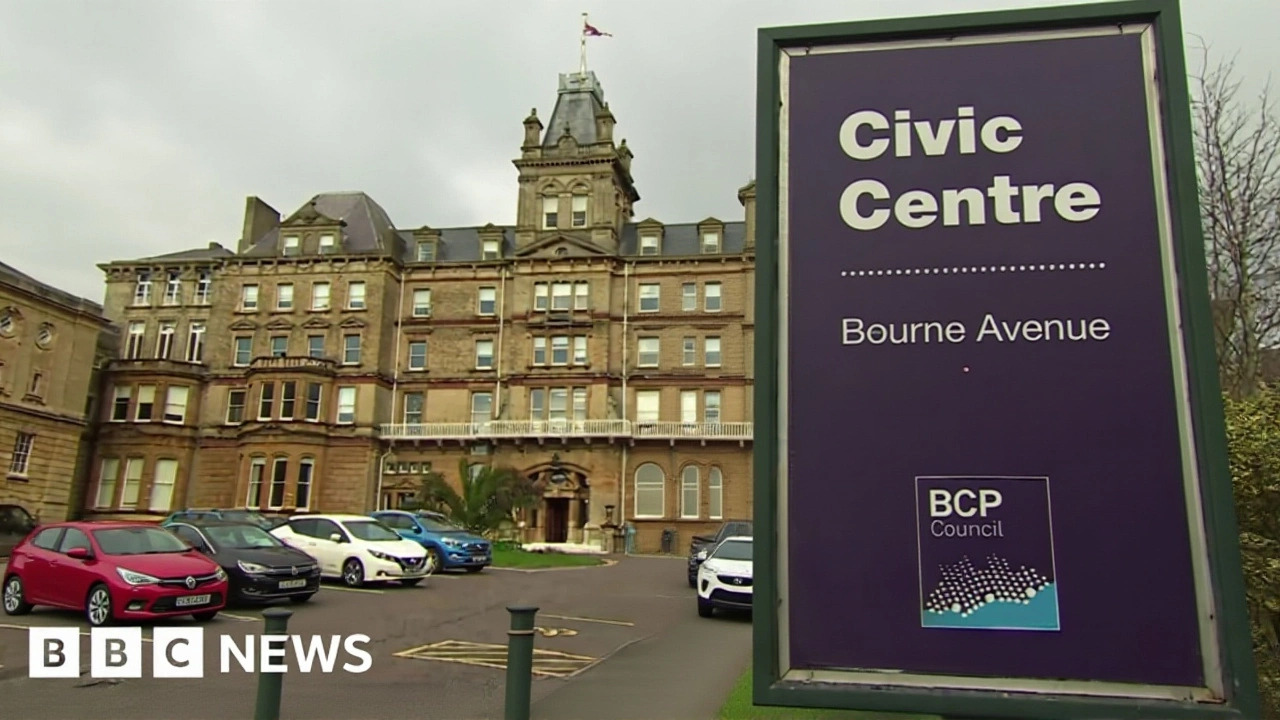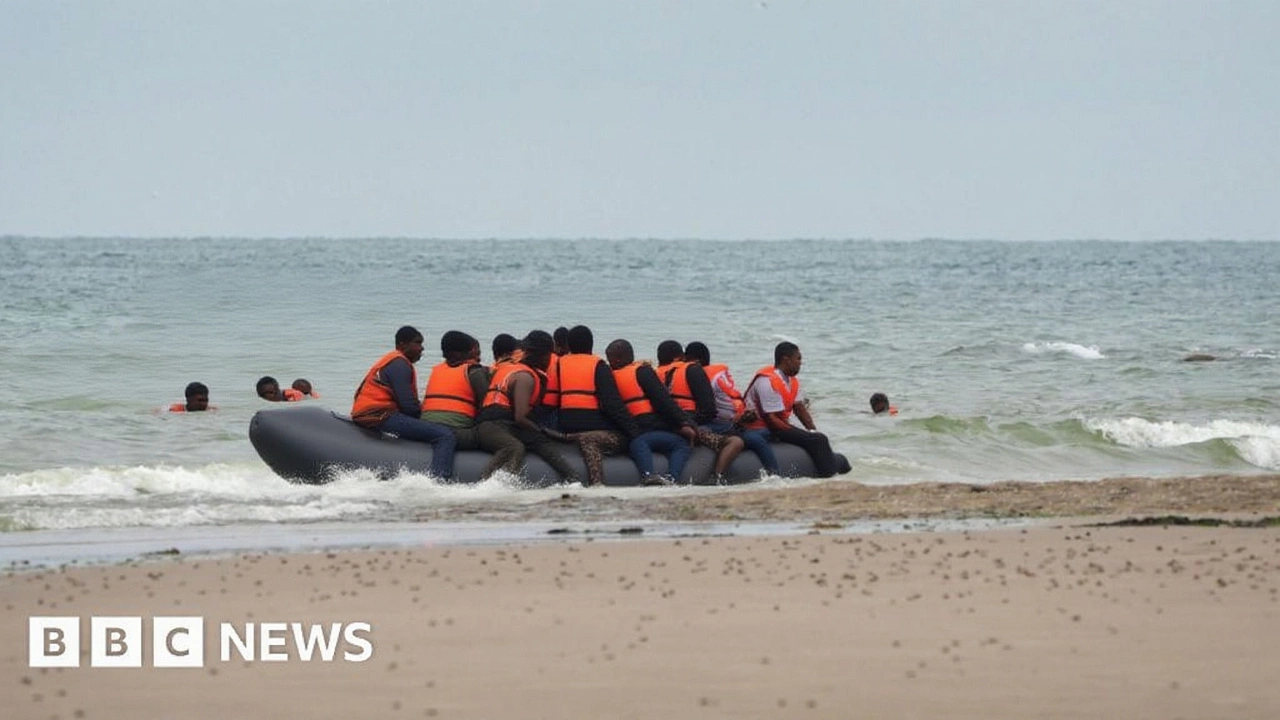When Suella Braverman, Home Secretary of UK Home Office, announced on September 4, 2025 that the government would suspend all new refugee family reunion applications, the news hit local councils hard. The decision comes amid a flood of asylum claims – more than 111,000 people applied in the year to June 2025, the highest tally since records began in 2001. With almost 21,000 family reunion visas granted in that same period, officials say the system is buckling under pressure in the United Kingdom.
Background: Record Asylum Flows and Family Reunion Grants
The Home Office released figures in August 2025 showing a 34% jump in asylum applications compared with the previous year. Most of those applications came from conflict‑torn regions in the Middle East and Africa, and a sizable share were families already settled under refugee status seeking to bring spouses, children, or elderly parents to join them. According to the same data set, women and children accounted for roughly 78% of the 21,000 family reunion visas awarded between July 2024 and June 2025.
Local authorities – from Manchester City Council to the Highland Council – have repeatedly warned that the influx strains housing, health and education services. The Economic Note HO EN 1028, dated September 2, 2025, outlined three policy pathways, noting that a “do‑nothing” approach would see the pressure continue to rise.
Details of the Suspension and Policy Options
The suspension is not a permanent ban. Instead, the Home Office will pause fresh applications while it reviews the broader family migration framework. The preferred “Option 1” allows refugees already in the country to apply for family reunions under existing, non‑refugee routes – such as the general family visa scheme – but bars the dedicated refugee family reunion stream.
Under the proposed changes, the British Red Cross says applicants may soon face an application fee of £2,300, an Immigration Health Surcharge of £624 per year, a mandatory 12‑month waiting period before a refugee can sponsor relatives, a minimum income threshold of £18,600 for the sponsor, and a required IELTS‑type English test for family members.
Minister of State for Immigration Chris Philp, the shadow home secretary, slammed the move as a “gimmick” and called on Prime Minister Keir Starmer to repeal the Human Rights Act for immigration matters – a line the Conservatives have been echoing for months.
Reactions from Advocacy Groups and Opposition
Jon Featonby, director of Refugee Council, warned that the new rules would “damage integration,” leave children “growing up without their parents,” and push desperate people toward smugglers. “In reality, restricting family reunion only fuels dangerous crossings,” he told reporters on Tuesday.
Meanwhile, the British Red Cross issued an urgent notice encouraging eligible refugees to file any pending applications before the September 4 cutoff. Their advice line ([email protected]) operates Monday‑Friday, 9 am‑5 pm, but staff stress they cannot provide legal counsel or cover any fees.
The Greater Manchester Immigration Aid Unit (GMIAU) echoed the Red Cross, urging families to act now. “Every day of delay could mean a lost chance to stay together,” said a spokesperson.

Potential Impact on Refugees and Public Services
Humanitarian groups estimate that at least 27 people have already died trying to cross the English Channel since the suspension was announced, based on AFP tallies of French official data. The suspension could also exacerbate mental‑health strains; a 2023 study by the University of Oxford found that prolonged family separation raises anxiety levels by 22% among refugee children.
On the flip side, local councils welcome the breathing room. A senior housing officer in Birmingham told us that the pause could prevent an estimated 3,400 extra household placements over the next 12 months, freeing up emergency accommodation for vulnerable residents.
What Comes Next? Timeline and Future Rules
- September 4, 2025 – Suspension takes effect.
- Early 2026 – Home Office publishes a revised family migration policy.
- Mid‑2026 – New eligibility criteria, fees, and language tests become operational.
- Late 2026 – First wave of applications under the revised framework is processed.
Prime Minister Starmer has indicated that the government will continue to welcome “genuine refugees fleeing persecution,” but adds that “there will be no golden ticket to settling in the UK; people will have to earn it.” The next parliamentary session is expected to debate whether the Human Rights Act should be amended to allow stricter immigration controls.
Frequently Asked Questions
How does the suspension affect refugees already in the UK?
Current refugees can still apply for family reunion through existing non‑refugee routes, but the dedicated refugee stream is on hold. This means longer processing times and stricter eligibility checks, which could delay reunions for up to a year.
What new requirements are likely to be introduced?
Proposals include a £2,300 application fee, a £624 annual health surcharge, a 12‑month waiting period before sponsors can apply, a minimum income threshold of £18,600, and an English‑language test for family members. These measures aim to ensure sponsors can support newcomers financially.
Why did the government decide to pause the refugee family reunion stream?
Officials say the surge – 21,000 visas in just one year – overwhelmed local services. The pause gives the Home Office time to redesign the system so it remains “fair and manageable,” according to the Home Secretary.
What are the main criticisms from advocacy groups?
Groups like the Refugee Council argue the move will fracture families, harm integration, and push migrants toward dangerous smuggling routes. They also fear the added fees and language hurdles will disproportionately affect the most vulnerable.
When can we expect the new family reunion rules to be published?
The Home Office has signaled a 2026 rollout. A detailed policy paper is expected in early 2026, with implementation slated for mid‑year, giving refugees and sponsors a few months to adapt to the new criteria.






